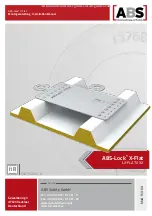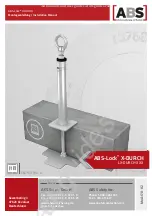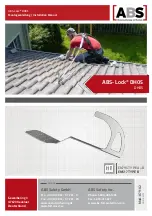
8-24
SV61611 Rev. B
8 • Scanning
OMR
Specifications
• For best line discrimination, maintain a 5 to 1 light to dark space ratio.
This means the spacing between lines must be at least 6 times the width
of and limits the maximum allowable line thickness to .635 mm (0.025”).
• Marks may be printed as four or five underscore characters ( ____ ) in a
row, with one mark per print line. Another method of generating marks is
to draw a minimum 10 mm line using graphic commands in the desired
location.
• All of the mark locations used shall be located together. One mark can-
not be on the top of the page with another located on the bottom of the
page.
• OMR marks can appear anywhere within the white regions shown on the
next page. The most common locations for OMR marks are along the
edges of the paper, or along the edge of the address block.
• The mark must be a solid black line between 0.002" (0.254 mm or 1
point) and 0.05" (1.25 mm or 3.54 points) thick, and at least 0.4" wide
(10.16 mm).
Too Thin: 0.127 mm (0.5 point)
Minimum: 0.254 mm (1 point)
Maximum: 1.25 mm (3.54 points)
NOTE:
Due to limitations of the reprographic process, the examples above
are not exact. However, they are accurate enough to show the relative differ-
ence between acceptable and unacceptable OMR mark thicknesses.
• Each mark position must be evenly spaced and at least 0.125” (3.175
mm) and no more than 0.167” (4.2 mm) apart.
• The maximum number of mark positions allowed within the code is 19;
this includes ignored marks. The total length of the OMR code should
not exceed 3.5” (89 mm).
• On the HCSF: the center line of the marks must fall within a range of
1.25” (32 mm) to 4.125” (105 mm) from the center line of the sheet.
On the Feeder Tower: the center line of the marks must fall within a
range of 0.787” (20 mm) to 4.92” (125 mm) from the center line of the
sheet.
• The first bar of the OMR marks should not be closer than .79” (20 mm)
from the Lead Edge. The last bar of the OMR marks should not be clos-
er than .79" (20 mm) from the Trail Edge of the sheet.
NOTE:
Currently,
for best results
, the OMR marks should not be closer than
1.77" (45 mm) from the Trail Edge of the sheet.
• The area around the marks should be kept clear from print, etc. that may
be read by the scanner in error; this area is called the Clear Zone. The
Clear Zone must be at least .12" (3 mm) on each side of the marks,
.38"
(9 mm) before the first mark and .38" (9 mm) after the last mark.
NOTE:
The system only accepts Clear Zone measurements in millimeters.
• There should be no print on the reverse of the sheet immediately behind
the Clear Zone.
Acceptable
Thickness
Range
}
Summary of Contents for SI5200
Page 1: ...Operator Guide US Canada English Version Document Inserting System SI5200 SI5400 TM...
Page 8: ...vi SV61611 Rev B Table of Contents This page is intentionally blank...
Page 10: ...vi SV61611 Rev B Contact Information List This page is intentionally blank...
Page 92: ...4 6 SV61611 Rev B 4 Advanced Operation This page is intentionally blank...
Page 112: ...5 20 SV61611 Rev B 5 Troubleshooting This page is intentionally blank...
Page 126: ...6 14 SV61611 Rev B 6 Reference This page is intentionally blank...
Page 180: ...8 36 SV61611 Rev B 8 Scanning This page is intentionally blank...
Page 188: ...A 8 SV61311 Rev E A Glossary This page is intentionally left blank...
Page 189: ...Index 1 SV61611 Rev B Index...
Page 195: ......
















































